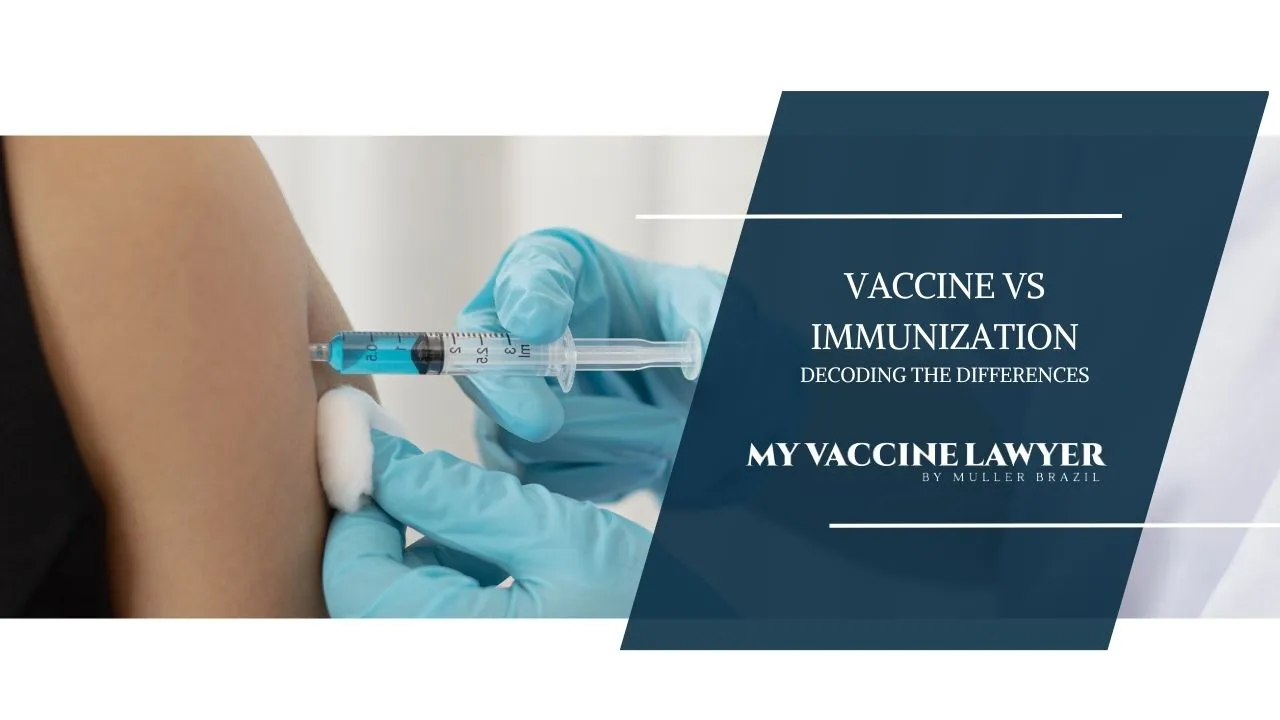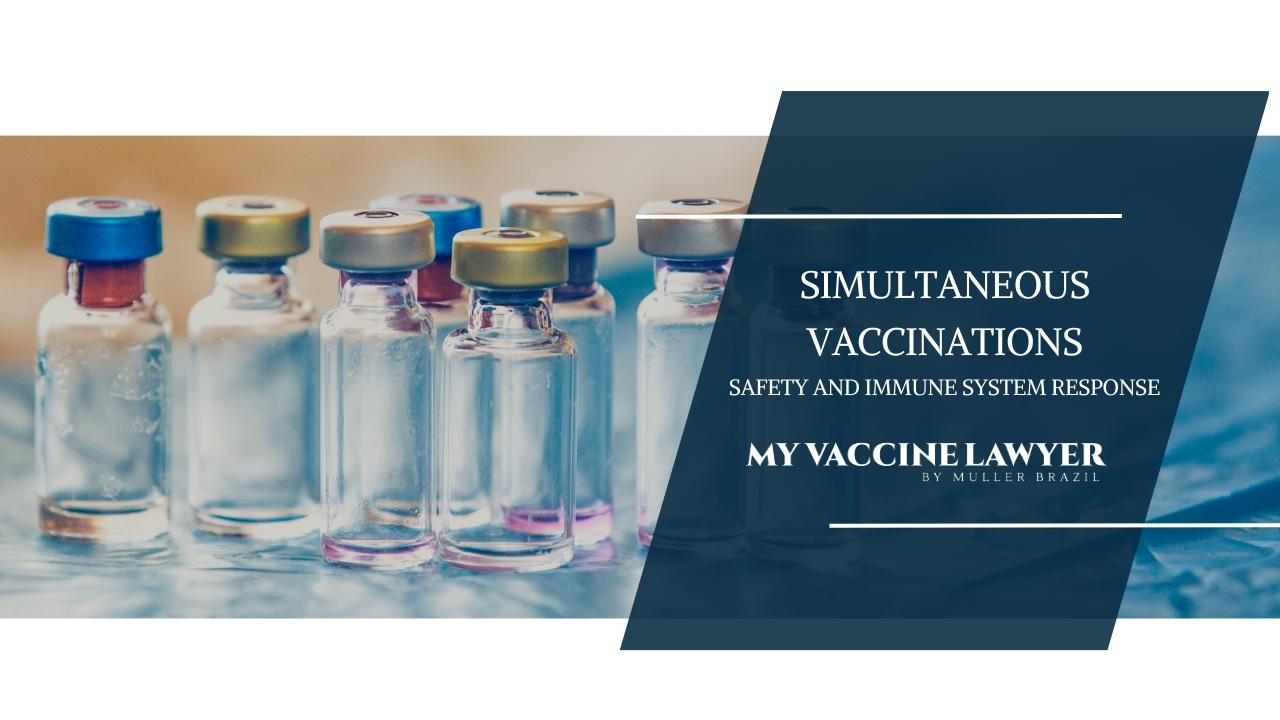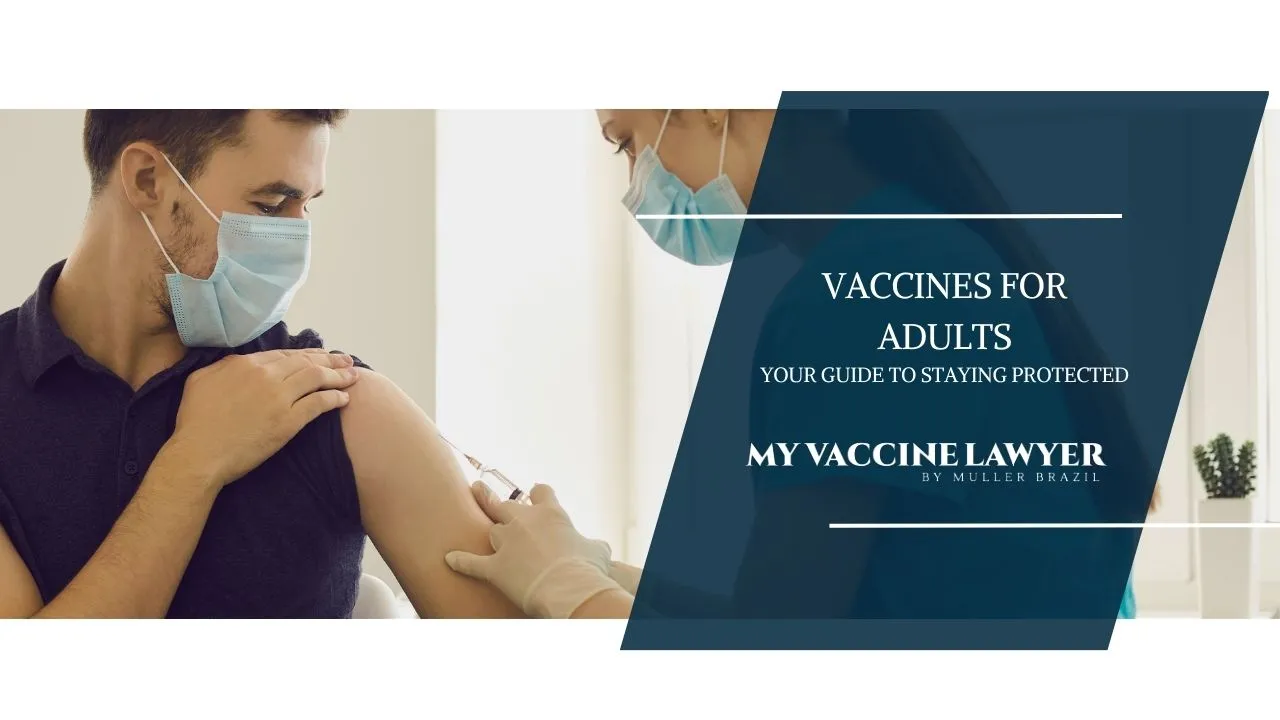Vaccines for Homebound Seniors
Vaccines play an important role in protecting older adults, especially those who are homebound and face specific challenges in accessing healthcare...
10 min read
Vaccine Injury Law Resources / Vaccines / Essential Adult Vaccines: A Comprehensive Protection Guide
 Max Muller
:
Feb 29, 2024 2:32:00 PM
Max Muller
:
Feb 29, 2024 2:32:00 PM
Vaccines prevent more than 2.5 million deaths in the United States each year. Despite this staggering statistic, understanding adult vaccinations can be complex and sometimes daunting.
Vaccinations protect not only you but also the community by stopping diseases from spreading. Make sure to get your vaccines at places like your doctor's office or local pharmacies and check your insurance for coverage. Staying up to date with your vaccinations keeps you and everyone around you healthier.
At My Vaccine Lawyer, we help you understand the vaccines you need, customized to your age and lifestyle. Keep up with important shots like the annual flu vaccine and the Hepatitis B vaccine. Always check with your doctor and your insurance to make sure you’re covered. Staying vaccinated protects you and others around you.
Vaccines retain their protective benefits well into adulthood, serving as vital barriers against diseases such as Hepatitis B, influenza, sickle cell disease, and pneumococcal disease. They stimulate your immune systems to build protective antibodies, helping your body learn to defend itself against diseases and build lasting immunity.
Some vaccines, like the flu vaccine, need booster doses over time as initial protection fades. Following the adult immunization schedule and getting the appropriate vaccines is of utmost importance.
Vaccines are important in protecting adults from serious health issues by preventing diseases and their complications. The flu vaccine, for instance, is a lifesaver! It reduces the risk of hospitalization and death by protecting against flu-related complications such as pneumonia, heart attacks, or strokes.
It’s recommended for all adults unless medically contraindicated, and high-dose flu vaccines are specifically recommended for adults aged 65 and older to provide better protection against influenza.
The Hepatitis B vaccine is also a barrier against not only Hepatitis B but also reduces the risk of HIV infection. Hepatitis B can be transmitted through sexual contact and blood/body fluids, making vaccination crucial to prevent widespread infection. Not being vaccinated against Hepatitis B can lead to serious health problems, including:
Vaccination protects you and increases the protection of those around you by contributing to herd immunity. Herd immunity occurs when a large portion of the population is immunized, making it difficult for diseases to spread.
This is particularly important for individuals who cannot get certain vaccines due to:
By getting vaccinated, you’re playing your part in keeping your community safe!
Understanding your vaccine schedule involves knowing when to get routine vaccinations and booster shots. For instance, adults aged 19 to 49 are recommended to have MMR (Measles, Mumps, and Rubella), while annual flu shots are recommended for those 18 and older.
The Advisory Committee on Immunization Practices (ACIP) provides vaccine use recommendations based on a vaccine safety and efficacy data review, shaping official public health guidance.
Your age influences the vaccines you need. For young adults aged 19 to 26 years, the HPV vaccine, which protects against human papillomavirus, is recommended if not done during earlier years, as it’s most effective when given to people between ages 9 and 12 but still offers protection before age 26.
As you age, your vaccine needs to change. Adults aged 27 to 49 are advised to get vaccinated against MMR, hepatitis B, and varicella if they do not possess evidence of immunity from past infections or vaccinations.
When you reach 50, it’s time for the shingles vaccine and a pneumococcal vaccine for continued protection against infections. Once you hit 65, it’s advised to have a high-dose or adjuvanted influenza vaccine annually and a pneumococcal conjugate vaccine if you’ve not previously received one due to the increased severity of infections as the immune system weakens with age.
Take Control of Your Injury Today
If you have missed a vaccine or are uncertain about your childhood vaccination status, fear not; you can always catch up! If you’re unsure of your vaccination status, consult a healthcare provider to identify necessary vaccinations. Catch-up vaccination schedules provided by the ACIP are designed to guide healthcare providers in ensuring that individuals receive missed vaccines in the correct order and timing.
For instance, the catch-up protocol for hepatitis B vaccination includes a 3-dose series, with the second dose given one month after the first and the third dose administered four months after the first. Interestingly, if there has been a long interval since the last dose, you don’t need to restart a vaccine series; catch-up vaccinations are administered to complete the series.
Your lifestyle can dictate the vaccines you require. For instance, if you’re a globetrotter, you’ll need to consider travel vaccinations. If you work in a healthcare setting, specific vaccines are recommended for you.
In some situations, like living in shared accommodations such as dormitories, meningitis vaccines are vital due to the high risk of spreading this potentially fatal brain infection.
If the travel bug has bitten you, protecting yourself from diseases common in your destination becomes crucial. Some countries even require certain vaccinations for travelers. For instance, Saudi Arabia insists on the meningococcal disease and polio vaccines for pilgrims.
Vaccine recommendations for international travel are made based on your:
The CDC’s travel website is a handy resource for guidance on which vaccines are recommended for international travel and locations of travel medicine clinics for further advice and immunizations.
Innovative vaccines are also being developed for diseases like Shigella that target dual markets, including travelers, and may include combination vaccines to protect against multiple diarrheal diseases. So, before you pack your bags, don’t forget to check your vaccine checklist!

Your occupation may dictate your vaccination needs. If you work in a healthcare setting, you’re on the frontline in the war against diseases. Vaccination for healthcare workers extends beyond personal protection to prevent the spread of infections to patients and the community. For instance, the Advisory Committee on Immunization Practices (ACIP) recommends the following vaccines for healthcare workers:
Influenza vaccines are particularly recommended annually for healthcare workers, and hospitals often mandate them to protect vulnerable patient populations. Moreover, healthcare workers exposed to blood and bodily fluids should receive the hepatitis B vaccination, a two- or three-dose series depending on the vaccine.
Not all protective measures are identical. Certain individuals require specific protections owing to their unique conditions. For instance, if you have a chronic medical condition or if you’re pregnant, you’ll need specific vaccines to make sure you’re adequately protected.
If you’re managing a chronic condition, vaccines offer additional protection. For instance, people with chronic heart disease or those who have had a stroke are at higher risk for complications from vaccine-preventable diseases, making the pneumococcal vaccine and flu vaccination essential.
Inflammation from viral diseases can cause serious cardiovascular events in those with heart disease, emphasizing the importance of vaccines in disease control to prevent such conditions. Including vaccines in your healthcare plan can help reduce known risk factors and other risk factors, improving overall health.
Lung health is another area where vaccines are important. Patients with chronic lung disease, including asthma or COPD, are advised to receive pneumococcal vaccines to reduce the severity of illnesses and the risk of complications from respiratory infections.
For those with chronic liver disease, vaccination against Hepatitis A and Hepatitis B is crucial to prevent infections that can lead to further health complications. If you’re undergoing hemodialysis or have end-stage renal disease, you’re at increased risk of infections and should be vaccinated with the hepatitis B vaccine and pneumococcal vaccine.
If you're expecting a baby, then congratulations! Protecting yourself from diseases is vital during this special time in your life. The CDC and healthcare providers recommend that pregnant women receive the Tdap vaccine between 27 and 36 weeks of pregnancy to protect against whooping cough.
Pregnant women are also encouraged to get the flu vaccine, ideally during flu season, to shield themselves and their baby from the flu’s potentially severe complications.
The scientific field of vaccines is constantly in flux. Research and development focus on updating vaccines for mutating viruses like influenza and COVID-19, guaranteeing safety and effectiveness across diverse populations. This includes individuals with underlying health conditions represented in the Phase I, II, and III clinical trials.
Vaccine technology extends beyond the creation of new vaccines; it also includes improvements in delivery methods. While injections are common, innovative delivery methods for vaccines include nasal sprays and capsules, providing alternatives for those who dread needles. One exciting development is the microarray patch, which offers needle-free, painless vaccine delivery and could also eliminate the need for cold chain storage.
When it comes to the vaccines themselves, there are different types. Live-attenuated vaccines provide long-lasting immunity, often requiring fewer doses compared to other types. Non-live vaccines usually require multiple doses and booster shots for sustained protection.
Continuous studies and clinical trials hold a key position in developing new vaccines and improving existing ones. For example, the Respiratory syncytial virus (RSV) vaccine is showing promising results, with developments like the maternal RSVpreF vaccine from Pfizer protecting infants for up to six months after birth.
Similarly, Tuberculosis vaccine research is advancing with candidates in Phase III trials, highlighting the importance of preparing for vaccine demand and trust once these become available.
Studies by the CDC account for host-related variables (such as age and underlying conditions), pathogen-related variables (like virus variants), and vaccine-related variables (including type and time since vaccination) to understand and increase vaccine effectiveness.
Approval for the use of vaccines follows a full development process, including initial research, proof of concept, and various clinical trial phases to guarantee safety and efficacy.
The safety and effectiveness of adult vaccinations hold great importance. Before a vaccine is recommended for use, it undergoes rigorous safety data reviews by experts. Monitoring systems like the Vaccine Adverse Event Reporting System (VAERS), the Vaccine Safety Datalink (VSD), and the Clinical Immunization Safety Assessment (CISA) Project play crucial roles in ensuring vaccine safety.
It’s time to tackle the large issue at hand: misconceptions about vaccine ingredients. One such myth is about thimerosal, a preservative used in vaccines. Thimerosal has been extensively examined and has a well-established safety profile. No scientific evidence suggests that thimerosal is unsafe in vaccine amounts.
Monitoring and reporting any vaccine side effects is vital to maximize vaccine safety. The Vaccine Adverse Event Reporting System (VAERS) allows healthcare professionals, vaccine manufacturers, and the public to report adverse events after vaccination, serving as an early warning system to detect rare adverse events. Serious adverse event reports to VAERS include those that result in:
These reports constitute a small percentage of the total. They are reviewed and followed up for serious cases, and duplicates are identified to help accurate data representation.
The Vaccine Safety Datalink (VSD) uses large linked databases to conduct proactive searches of vaccine-related data. Identifying patterns that might indicate safety issues contributes to guaranteeing the safety of vaccines on the market.
CDC’s Clinical Immunization Safety Assessment (CISA) Project conducts research on the health risks of vaccination in specific populations, helping guarantee safe immunization practices.
If you've suffered an adverse reaction following a vaccination, you may be wondering about your legal options. The National Vaccine Injury Compensation Program (VICP) provides a recourse for individuals who have experienced vaccine injuries. This program was established to offer a fair and efficient system for resolving vaccine injury claims.
Filing a claim with the VICP can be a complex process, but with the assistance of specialized legal counsel, such as My Vaccine Lawyer, the path to compensation becomes clearer. Our expertise in navigating the VICP's procedures and requirements makes the difference in successfully reclaiming losses due to vaccine injuries. It's important to understand that with the right help, there are clear and manageable paths to win a vaccine injury case.
Vaccination is a straightforward process, but where should you go for it? Depending on the vaccine, you can get vaccinated at:
Verifying your insurance coverage is important as it may not cover all vaccines.
Local pharmacies often offer the most recommended vaccines for adults and some travel vaccines. It’s best to call ahead to confirm availability and if a prescription is needed. The ability of pharmacists to prescribe or administer vaccines varies by state, with independent administration allowed in some states and others requiring a patient-specific prescription.
If you prefer getting vaccinated at a doctor’s office or a health department, you don’t need a patient-specific prescription from another healthcare provider. If you’re uninsured or don’t have a regular source of care, federally funded health centers offer vaccinations based on income. You can locate these centers through your local or state health departments.
Access to vaccines is greatly influenced by insurance coverage. Medicare provides coverage for essential vaccines such as:
In addition, Medicare Part D complements Part B by covering all other recommended adult vaccines not included in Part B. RSV and Zoster (shingles) vaccines are provided at no cost to beneficiaries.
Military personnel and their dependents can access vaccines according to the CDC’s recommendation schedule through TRICARE. Good news for Medicaid and CHIP beneficiaries, starting October 1, 2023, these programs will guarantee coverage for all ACIP-recommended vaccines without cost sharing for most adults.
Uninsured adults can obtain no-cost updated COVID-19 vaccines from providers participating in the CDC’s Bridge Access Program, including healthcare providers and retail pharmacies. If you’re uninsured, the HealthCare.gov website is a resource for information on affordable health insurance plans that may provide vaccine coverage.
In a world where preventable diseases still pose a threat, vaccines are our strongest shield. From understanding the basics of adult vaccinations and navigating your vaccine schedule to identifying necessary vaccines based on lifestyle and health conditions, we’ve covered the journey of staying protected.
Research and development continue to innovate and improve vaccines, while rigorous monitoring systems maximize their safety. Access to vaccines is helped through various services, and understanding your insurance coverage can smooth the process.
If you have experienced any adverse reactions or worsening side effects following vaccination, don't hesitate to reach out to My Vaccine Lawyer. Our dedicated team is here to help you understand your rights and guide you through the process of seeking compensation.
Common vaccines for adults include flu, Tdap (tetanus, diphtheria, whooping cough), HPV, meningitis (if living in shared housing), hepatitis B, shingles, and pneumonia. It's important for adults to stay up to date with their vaccinations to protect their health.
Yes, adults should receive a Tdap vaccine as recommended by the CDC, especially if they have never received the vaccine before or if it has been more than 10 years since their last dose.
The Respiratory Syncytial Virus vaccine for adults, such as Arexvy and ABRYSVO, works by stimulating the immune system to recognize and prevent severe disease caused by the RSV virus. These vaccines are the first-ever approved for use in the U.S. and are highly effective at preventing serious illness from RSV infection.
Vaccination duration varies between different vaccines, with some shots providing lifetime immunity and others requiring booster doses every few months or years. (No date)
To navigate your vaccine schedule, consult your healthcare provider or follow the recommendations of ACIP. This will help you understand when to get routine vaccinations and booster shots.
Mr. Muller currently devotes the majority of his law practice to aggressively fighting for the victims of unsafe drug and medical device injuries, as well as vaccine injuries and vaccine reactions involving the flu shot, TDaP/DTaP vaccine, and more. He has handled hundreds of SIRVA injury cases (shoulder injury related to vaccine administration), especially those involving bursitis, tendonitis, frozen shoulder, and rotator cuff tears. Mr. Muller also handles cases where vaccines caused serious nerve injuries such as Guillain-Barre Syndrome. Mr. Muller has recovered millions of dollars in compensation for his clients in the Vaccine Injury Compensation Program.

Vaccines play an important role in protecting older adults, especially those who are homebound and face specific challenges in accessing healthcare...

Vaccines provide the blueprints for our immune systems to combat diseases effectively. Immunization, evidence of the success of these vaccines, is...
 Read More
Read More
